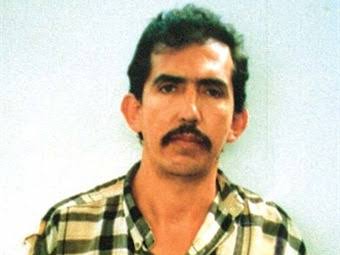Le Bestia (The Beast)

Luis Garavito
Luis Garavito also called by the media as the Le Bestia (The Beast), Colombian is possibly one of the world's terrible serial killers. He admitted to the torture, rape, and killing of 147 young boys. But the number is understood to be over 300. He was found guilty on 139 counts, which should amount to 1,853 years in jail. But Columbian law restricts it to 30, which is what he was sentenced to in 1999. Unfortunately, he may be released before for cooperation and a good attitude.
Early Life
Luis Alfredo Garavito Cubillos was born on Jan 25, 1957, in Genova, Quindío, Colombia’s western coffee-growing region, he was the senior of seven sons and grew up in an environment of violence: beaten by his father, Manuel Antonio Garavito, and continually raped by two male neighbors. Garavito had just five years of education and left the house at 16, working first as a store clerk, then as a street seller who sold spiritual icons and prayer cards.
As an adult
Garavito wandered from job to job, drinking heavily and behaving aggressively until he wore out his welcome and walked away to the next town. He attempted suicide at least onetime and was under psychiatric care for five years, according to police documents. Garavito had admitted to killing at least 140 boys between ages 8 and 16 over a five-year duration that stopped when he was jailed on April 22, 1999, on an irrelevant rape charge of a 12-year-old boy.
Confession
The police and prosecutors say Garavito has confessed killing children in 54 cities across Colombia as well as in Ecuador. The hugest attention of murders appears to have happened in his aboriginal region, in and around Pereira, a coffee-growing region in the west-central part of the country. The statement of Garavito's confession has produced disgust, indignation, and stress throughout this South American world of 40 million people.
Law and Crimes
Colombia does not have the death penalty for homicide, but the heinousness of the crimes of which Garavito is accused has directed Gen. Rosso Jose Serrano, the chief of the national police, and several others to call for an oddity. Garavito, a wanderer, would assist the children and take them on long walks until they are bored. Then he would tie them up to trees with nylon rope, slit their throats or behead them, and put their bodies in simple graves and detectives suppose a large number were sexually abused.
He has declared that all of his crimes were committed when he was drunk and was taken over by a "superior being". "The police have so far found 114 skeletons". Several, if not a majority, of the victims, appear to have been street children, from poor homes or separated from their parents by poverty or the political violence that has displaced 1.5 million Colombians in little more than a decade.
Such children- grimy, hungry, morose, and poorly dressed-have become a common sight on the street nooks of Colombia's large cities and towns, where they beg, sell newspapers or chewing gum, or shine shoes. Detectives were led to Garavito when observers and hotel lists spotted him near several of the murders, and rope found in his home matched the wire used to tie many of the victims’ hands, among other clues. The police announced that the evidence against the brown-haired, green-eyed Garavito, who has a deep wound on his left arm, is so strong that it urged the confession.
Police dug up a mass grave of his alleged victims — 25 youths, in November 1997, in a valley in the western coffee-growing city of Pereira. That gruesome finding initially believed by regional authorities to be the work of a satanic cult encouraged authorities to establish a national task force that began to experience similarities between cases across the country.
Kids disappear all the time in Colombia, the authorities declared that it was because there was no one to notice that the children were missing or to investigate about their whereabouts that Garavito was able to kill for so long without being observed. But his confession has brought an avalanche of objection from needy people, who say the police are indifferent, harsh, or corrupt.
Garavito passed himself off as "a freeway seller, monk, indigent, disabled person or a representative of fictitious organizations for the seniors and kids' schooling, in that way gaining entrance to schools as a speaker". Since the murders began in 1992, Garavito has moved repeatedly, and spent time in Ecuador, where police are trying to relate him to other child deaths. Authorities said Garavito would undergo a comprehensive psychological inspection. Garavito has been sentenced to prison for only two of his crimes. A judge in Tunja, the capital of the main Boyaca province, convicted Garavito for the homicide of 14-year-old Silvino Rodriguez, whose headless and tortured body was found on the outskirts of the city in June 1996.
He also found Garavito guilty of the attempted rape of the 12-year-old boy in the western city of Villavicencio in April 1999, the crime that led to his arrest.
Once caught, Garavito was subject to the extreme penalty accessible in Colombia, which was 30 years. Still, as he confessed the crimes and supported authorities discover bodies, Colombian law approved him to apply for special advantages, including a decrease of his sentence to 22 years and perhaps an even earlier release for more cooperation and good manners. In the following years, Colombians have increasingly felt that due to Garavito's approaching early release, his sentence is not enough punishment for his crimes. Colombian law initially had no way to extend the sentence, as cases of serial killers like Garavito had no legal precedent in the country and thus the legal policy could not appropriately deal with this case.
In 2006
In late 2006, however, a judicial study of the cases against Garavito in various local jurisdictions found that his sentence could be extended and his release was postponed, due to the presence of crimes he did not admit to and for which he was not previously condemned.

 My First News Item
My First News Item My Nine News Item
My Nine News Item